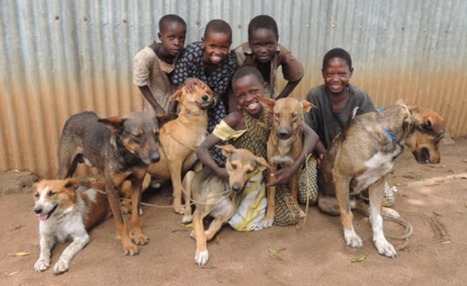Filoviruses such as Ebola virus (EBOV) cause outbreaks of viral hemorrhagic fevers for which no FDA-approved vaccines or drugs are available. The 2014–2016 EBOV outbreak in West Africa infected approximately 30,000 people, killing more than 11,000 and affecting thousands more in areas still suffering from the effects of civil wars. Sierra Leone and Liberia reported EBOV cases in every county demonstrating the efficient spread of this highly contagious virus in the well-connected societies of West Africa.
In communities, canines are often in contact with people while scavenging for food, which may include sickly bush animals or, as reported from the outbreak, EBOV infected human bodies and excrement. Therefore, dogs may serve as sentinel animals for seroprevalence studies of emerging infectious viruses.
The authors used a multiplex Luminex-based microsphere immunoassay (MIA) to detect dog IgG binding to recombinant filovirus antigens or LASV glycoprotein (GP) in serum from dogs that were old enough to be present during the EBOV outbreak. We identified 47 (73%) of 64 dog serum samples as potentially exposed to filoviruses and up to 100% of the dogs from some communities were found to have elevated levels of EBOV antigen-binding IgG titers.
These data support the feasibility of canines as EBOV sentinels and provides evidence that seroprevalence studies in dogs can be conducted using suitable assays even under challenging field conditions.
Study published July 22 on PLOS Neglected Tropical Diseases:



 Your new post is loading...
Your new post is loading...








Dogs are known to be infected by Ebola since at least 2005, however the infection is presumably very mild and asymptomatic ( https://doi.org/10.3201/eid1103.040981 )